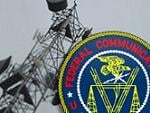FCC
Report by the FCC dismisses wireless internet interference claims
 The Federal Communications Commission released an engineering report on Friday, which gives the green light to a project to create a free wireless internet service across the U.S. The report negates concerns raised over potential interference to existing providers who have acquired spectrum length adjacent to the portion intended for the service.
The Federal Communications Commission released an engineering report on Friday, which gives the green light to a project to create a free wireless internet service across the U.S. The report negates concerns raised over potential interference to existing providers who have acquired spectrum length adjacent to the portion intended for the service.
The FCC has auctioned 25 MHz of spectrum in the 2155 MHz to 2180 MHz band, on the condition that the license holder(s) provide free wireless broadband service with some of the bandwidth. The auction is part of a plan proposed to the FCC by M2Z networks in 2006, to provide broadband internet to Americans who can’t afford or don’t want to pay for high-speed internet access.
Objections were immediately raised by existing providers, like T-Mobile; they spent $4.2 billion in 2006 to buy spectrum in an adjacent band, and they claim that making this spectrum active could cause interference and service disruption.
The report however, which was written by FCC engineers who performed tests in Seattle recently, rebuts T-Mobile’s worries and clears the portion of spectrum for broadband use, saying that it can be used "without a significant risk of harmful interference."
According to a statement given by an FCC spokesman, "This report confirms that we're able to move forward with broadband services as proposed by Chairman Martin without causing harmful interference to license users of adjacent spectrum."
The network, should it be constructed, would have to reach 50% of the United States population in four years, and as much as 95% within a decade.
(Published by eFluxMedia - October 13, 2008)